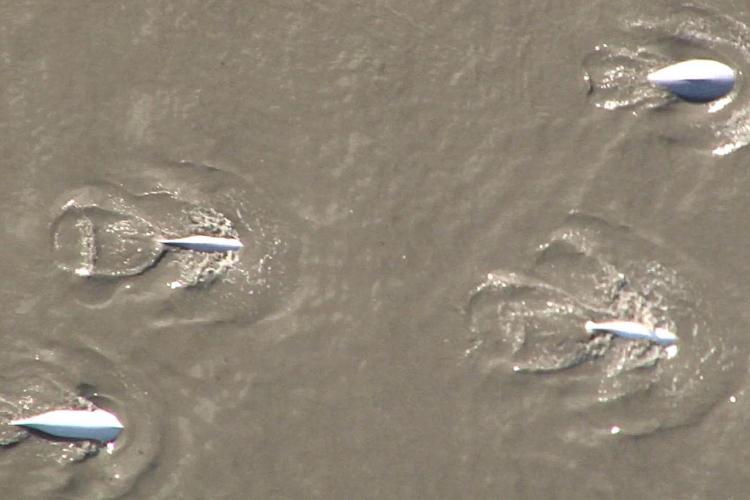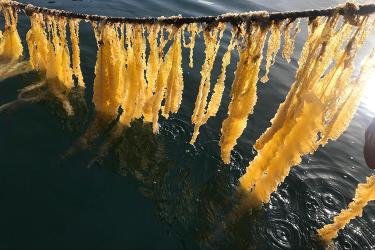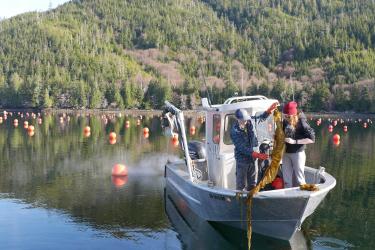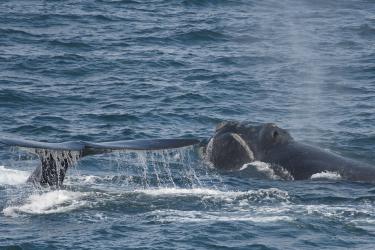Julie Speegle, (907) 586-7032 (office), (907) 321-7032 (cell)
What will it take to recover Alaska's iconic Cook Inlet beluga whales from extinction? NOAA Fisheries has a draft plan to do just that, and is seeking public comment.
The Draft Recovery Plan for the Cook Inlet Beluga Whale will guide efforts to recover Cook Inlet beluga whales to a point where they can be removed from the federal endangered species list. NOAA Fisheries developed the draft plan with the assistance of a recovery team comprised of scientific experts and advised by a panel of stakeholders.
"The recovery actions recommended in this draft plan are based on the best available science," said Jim Balsiger, NOAA Fisheries Alaska Regional Administrator. "We look forward to receiving public comments to help us develop a final recovery plan, and then working with the State of Alaska and other partners to implement recovery actions to benefit Cook Inlet belugas."
NOAA Fisheries listed Cook Inlet beluga whales as endangered in 2008 and designated critical habitat for the species in 2011. NOAA Fisheries estimates the population of Cook Inlet belugas to be just 340 animals, and the 10-year population trend has continued to show a decline.
The Cook Inlet beluga whale is one of eight species that NOAA Fisheries has identified nationwide as part of a new Species in the Spotlight initiative to stabilize population declines and focus resources on the species that are among the most at-risk.
Governor Bill Walker is pleased with the release of the draft recovery plan, and stated, "Without this plan, future Cook Inlet development projects could be hampered."
"We look forward to completing our review and providing comments," said Alaska Fish and Game Commissioner Sam Cotten. "We also support NOAA Fisheries' proposal to include Cook Inlet belugas on their list of priority species at a national level. The Department of Fish and Game will work together with NOAA Fisheries and stakeholders to stabilize this declining population and advance recovery."
The draft recovery plan identifies and assesses ten potential threat types, and indicates the potential risk each threat poses to Cook Inlet beluga whales: high, medium, or low. Threats of high relative concern include catastrophic events (such as natural disasters, spills, and mass strandings), in-water noise, and the cumulative and synergistic effects of multiple stressors. The draft plan also sets the criteria that would need to be met to reclassify the status of Cook Inlet belugas from endangered status to threatened, and eventually to declare the whales recovered.
The recovery strategy takes an adaptive management approach that will allow the plan to be periodically modified and updated, per the standard five-year review and revision for all recovery plans.



